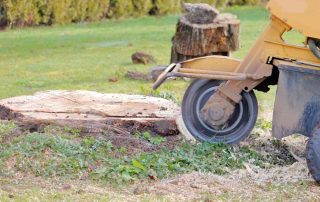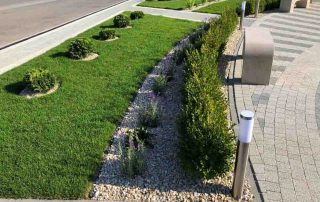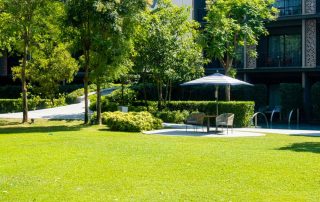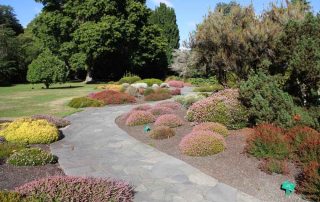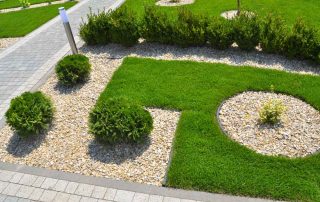When to Aerate Your Lawn in the Mid-South
Pugh's Earthworks Imagine stepping onto a carpet of lush, green grass that feels like walking on clouds. For homeowners, gardening enthusiasts, and landscapers in the Mid-South, achieving this idyllic scene starts with understanding when and how to aerate your lawn. Aeration is a crucial component of lawn care, and knowing the best season to aerate can transform your patchy yard into a thriving oasis. This blog post will guide you through the essentials of Mid-South Aeration, offering practical lawn care tips and revealing the benefits of professional Pugh's Earthworks Commercial Landscaping aeration. Why Aeration Matters for Your Lawn Aeration involves perforating the soil with small holes to allow air, water, and nutrients to penetrate the grassroots. This process is essential because it alleviates soil compaction, which can inhibit the healthy growth of grass. Over time, activities like walking, mowing, and even the natural settling of soil can compact your lawn, making it difficult for roots to access the vital nutrients they need. Aeration counteracts this compaction, ensuring that your lawn remains healthy and vibrant. The benefits of aeration extend beyond just healthier grass. For one, it improves soil drainage, reducing the risk of waterlogging and the potential for diseases that thrive in soggy conditions. Aeration also promotes better fertilizer utilization by allowing nutrients to reach deeper into the soil. Finally, by enhancing root growth, aeration makes your lawn more resilient to drought and heat stress, common challenges in the Mid-South climate. Identifying the Best Time for Mid-South Aeration Timing is everything when it comes to lawn aeration. In the Mid-South, the ideal time to aerate your lawn is during the growing seasons of late spring and early fall. During these periods, grasses are actively growing, which helps them quickly recover from the aeration process. This timing allows grass to fill in any open spaces left by the aeration holes, leading to a denser and healthier lawn. Late spring aeration is particularly beneficial for warm-season grasses such as Bermuda and Zoysia, which thrive in the Mid-South's warm climate. These grasses begin their growth spurts as temperatures rise, making spring aeration the perfect time to support their development. Conversely, early fall aeration caters well to cool-season grasses like fescue, which benefit from the cooler temperatures and increased rainfall typical of autumn in the Mid-South. Preparing Your Lawn for Aeration Before aerating your lawn, it is important to prepare the ground properly. Pugh's Earthworks will start by watering your lawn deeply a day or two before the scheduled aeration. This step ensures that the soil is moist enough to allow the aerator to penetrate easily but not so wet that it becomes muddy. Proper moisture levels are crucial for effective aeration and for preventing damage to the grass and soil structure. Next, make sure to clear your lawn of any debris such as leaves, sticks, or toys that could interfere with the aeration process. Additionally, mark any sprinkler heads or shallow irrigation lines to avoid damaging them during aeration. Taking these preparatory steps [...]



